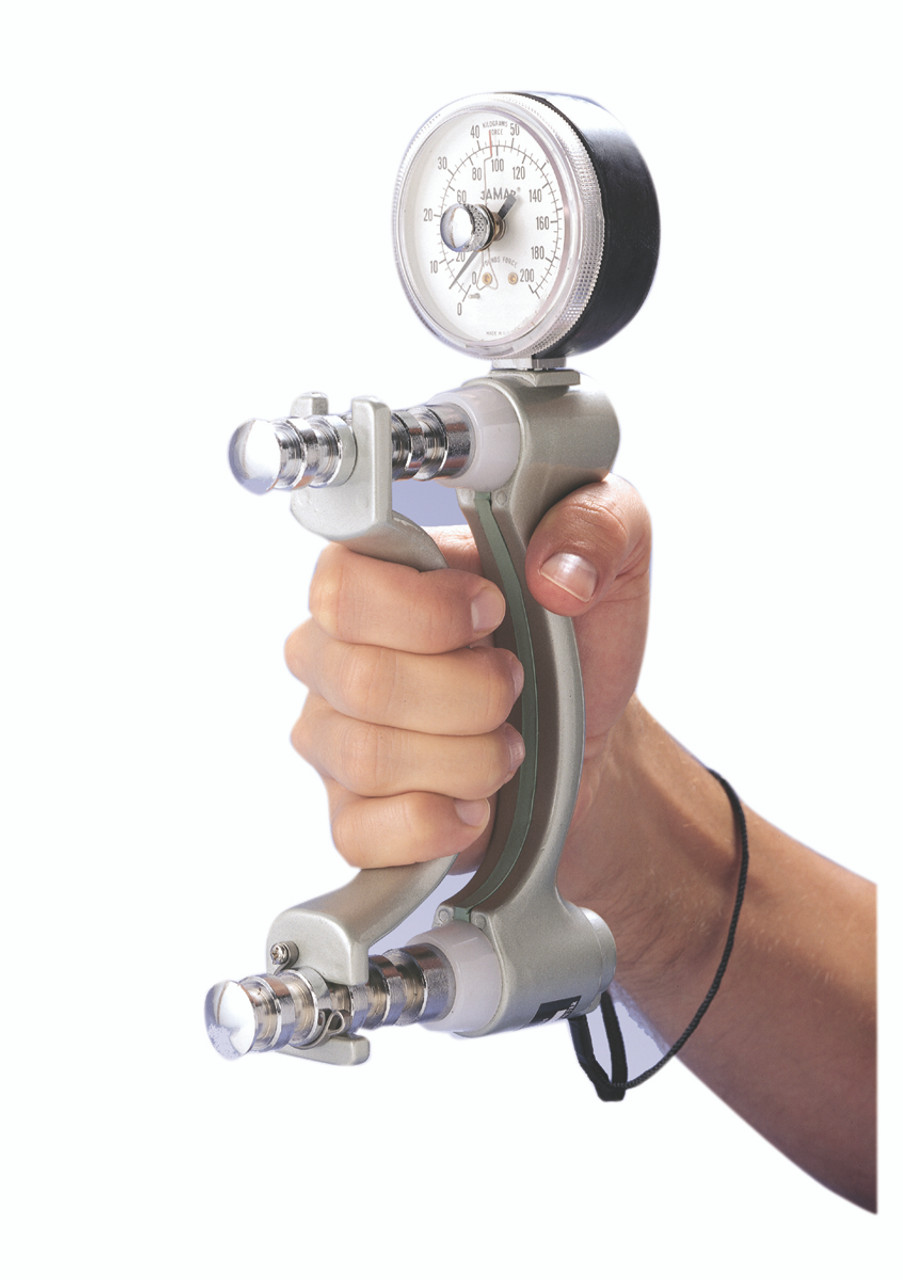Grip Testing Instructions for Older Adults
Research has shown that grip strength is a simple but important way to measure upper body strength. Grip strength has been linked to many aspects of health in older adults, including memory, heart health, and risk of frailty. What people often don’t realize is that the way grip strength is tested — especially the instructions given — might change the results. Different instructions may affect how strong the squeeze looks or how quickly the test is performed. This study will look at how testing instructions influence both peak grip strength and how fast the muscles activate during the squeeze. By learning more about how instructions impact results, we could make grip strength testing more accurate. In the future, this information could help doctors and researchers better identify changes in health earlier and more reliably.
This research study consists of two separate in-person visits. During each visit, you will be seated and handed a hand grip testing device to perform multiple grip strength assessments. All testing will be conducted on your dominant side, defined as the hand you would choose to write with. In both visits, electrode pads will be placed on two specific parts of your forearm to measure the muscular activity of two muscles that are utilized during a grip assessment. Researchers refer to these types of sensors as surface electromyography, or sEMG. You will then be given a set of instructions prior to the start of your test. You will be asked to squeeze a grip testing device (sometimes referred to as a “dynamometer”) according to your interpretation of those instructions for a total of three trials. This will then be repeated using two more different sets of instructions for three trials each, resulting in a total of nine hand grip dynamometry tests. At least one minute of rest will be allowed in between each trial. At the end of the nine tests, your session will end.
Your second visit will be scheduled at least 24 hours after the first visit, but no longer than 7 days between each visit. We anticipate that each visit will last no more than an hour, for a total participation time of no more than 2 hours.
Inclusion Qualifications:
- Aged 60 years or older
- Have normal cognitive function (based on results from the Mini-Mental State Examination [MMSE] or Telephone Interview for Cognitive Status)
- Are willing to perform grip strength tests and provide informed consent
- Fluent in English
Exclusion Qualifications:
You may not participate in this research opportunity if any of the following applies to you:- Body mass index (BMI) of less than 18.5 or greater than 35.0 kg/m2
- Possibility of sarcopenia (based on results from SARC-F survey)
- Uncontrolled hypertension (≥160/100 mmHg)
- Pulmonary conditions such as chronic obstructive pulmonary disease (COPD), uncontrolled asthma, or other respiratory conditions that could limit physical exertion
- Neuromuscular disease (e.g., MS, ALS, Parkinson’s)
- Tremor or rigidity
- Current diagnosis of a metabolic disease (e.g., diabetes, thyroid disorder, metabolic syndrome); diabetes is exclusionary even if controlled with medication
- Current diagnosis of cancer or less than one year in remission
- Peripheral neuropathy of the upper extremities (e.g., carpal tunnel syndrome, ulnar neuropathy, chemotherapy-induced, idiopathic)
- Upper-extremity corticosteroid injection within the past 8 weeks
- Congenital or acquired hand deformities, amputation, or missing digits (fingers)
- Lymphedema or significant edema of the upper extremities
- Raynaud’s phenomenon or severe peripheral vascular disease of the hands with cold-induced pain/ischemia
- Visual/hearing impairment not correctable with aids that prevents following test instructions safely
- History of stroke or transient ischemic attack (“mini stroke”)
- History of heart attack within the past 6 months
- Unstable cardiovascular disease (e.g., decompensated heart failure, unstable angina, uncontrolled arrhythmias, severe aortic stenosis)
- Surgeries of the upper extremity within the last 6 months
- Current pain and/or injury of upper extremity
- Current diagnosis of arthritis affecting the hands or wrists
- Score of >2/5 on question 9, or a score of >1/5 on question 10 or 11 on the QuickDASH outcome measure indicating pain/discomfort of the upper extremities (shoulder, elbow, wrist, hand).
- Medications that may affect study outcomes or compromise participant safety. Examples include muscle relaxants, benzodiazepines, anticonvulsants, chronic corticosteroid use, anabolic or hormonal agents (e.g., testosterone, GLP-1 receptor agonists), and anticoagulant or antiplatelet therapies.
- Allergy to rubbing alcohol
- Active dermatologic issues (e.g., open wounds, skin tears, active dermatitis, infection)
- Unstable or acute health conditions
- Acute illness (current fever, systemic infection)
- Current smoker (defined as having smoked ≥1 cigarette within the past 30 days)
Participate in this Research
Submitting this form will put you in contact with the main point of contact for this project. They will provide more information and determine if you meet all of the qualifications needed."*" indicates required fields
PI: Matt Stock
IRB Expiration September 24, 2026
May 1, 2026
Education Complex and Gym
12494 University Blvd.
ED174A
Orlando, FL 32816
Number of visits: 2
Expected time per visit: 1 hours
Jessie McClellan
Physical Therapy
Exercise Physiology & Rehabilitation Science

